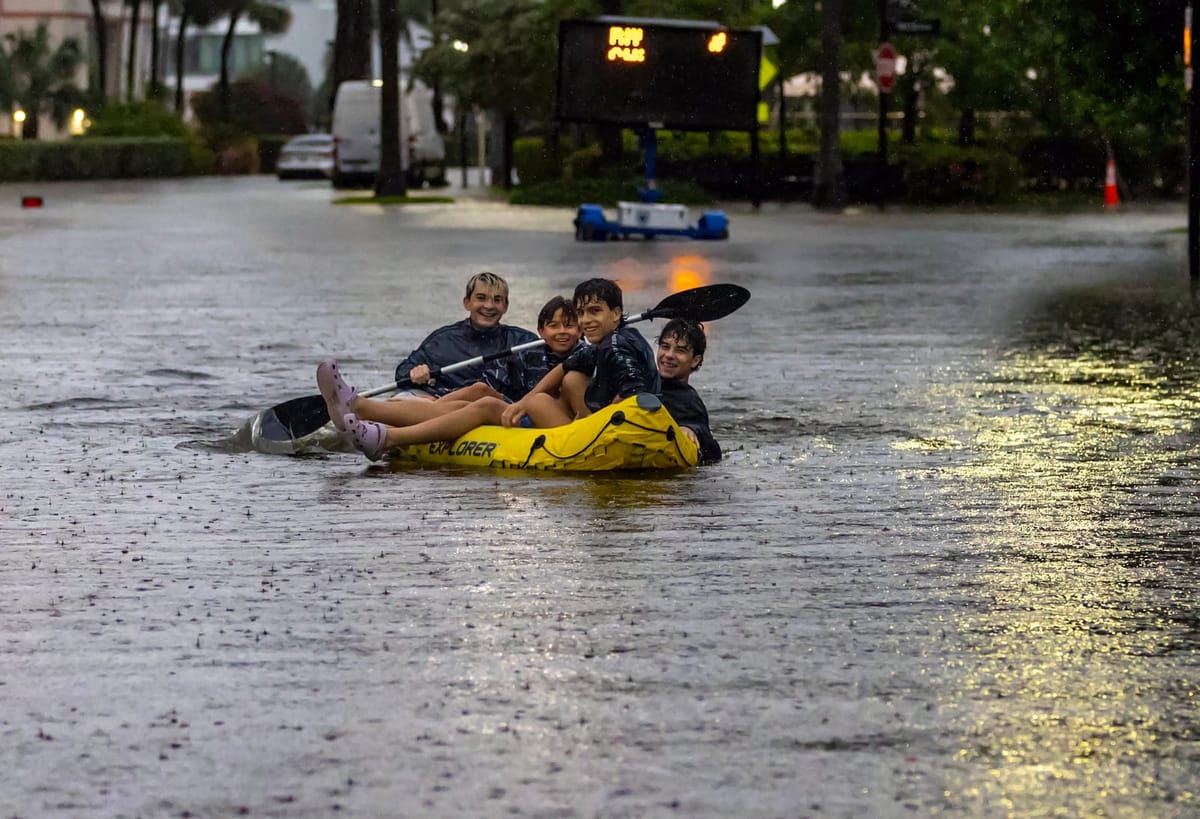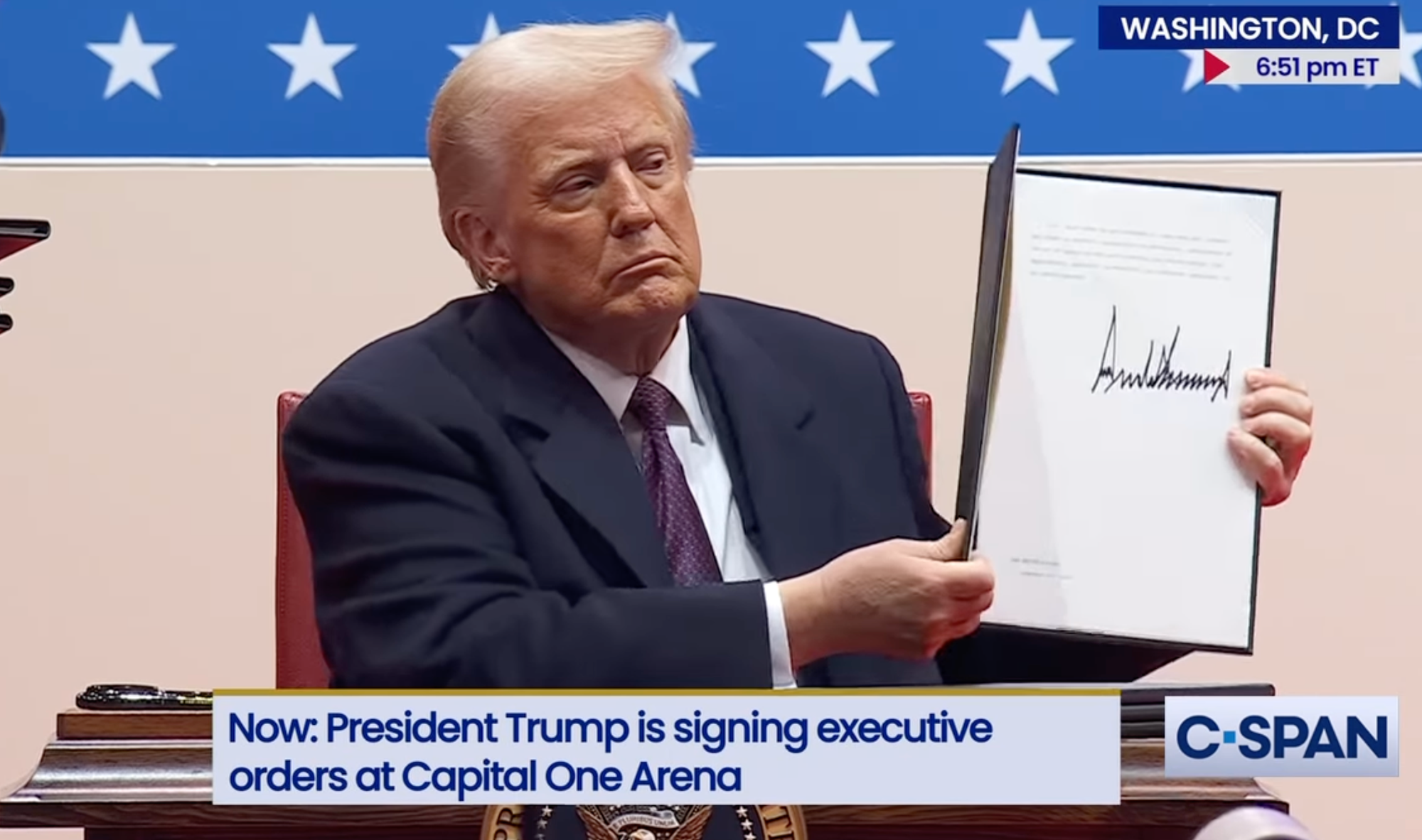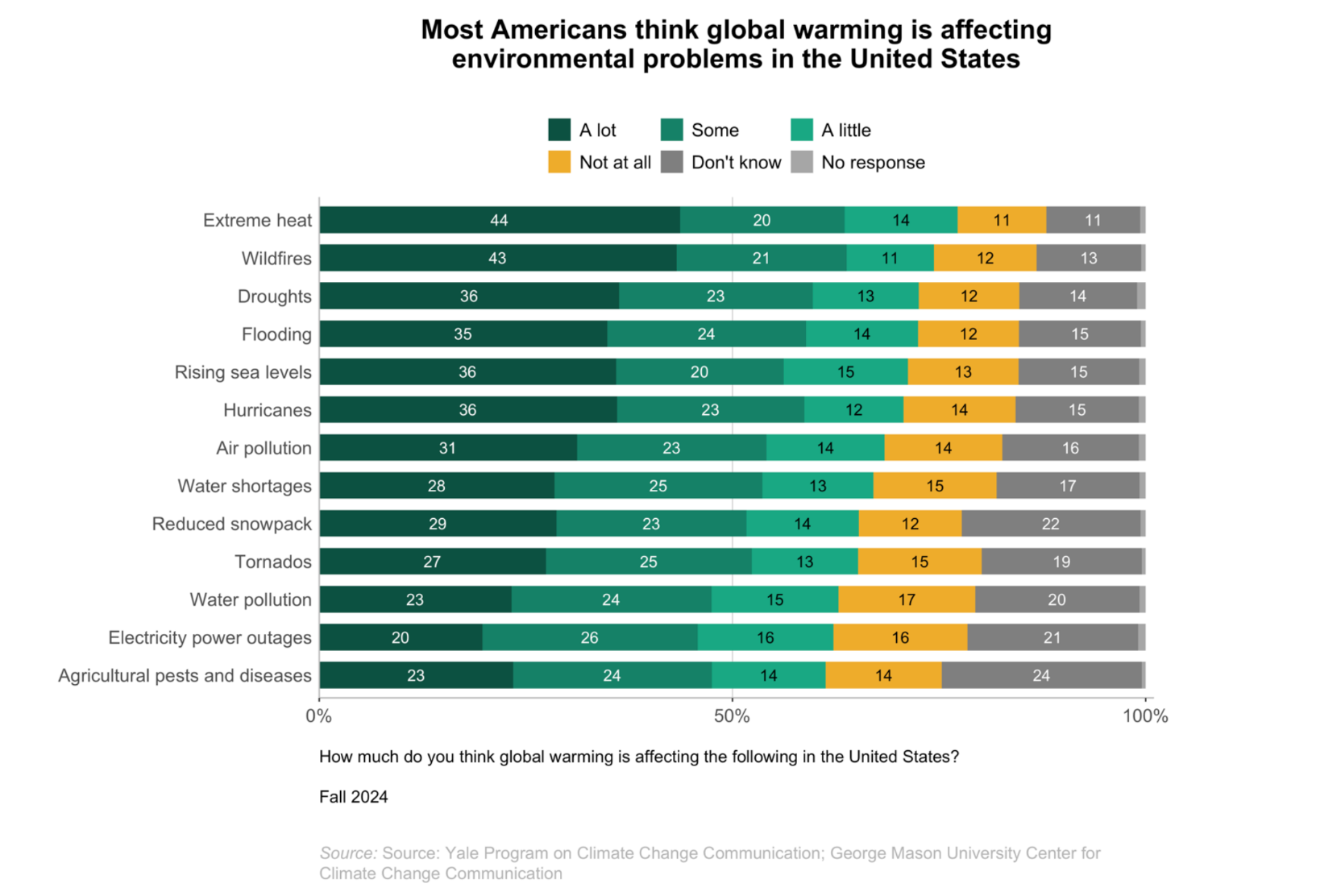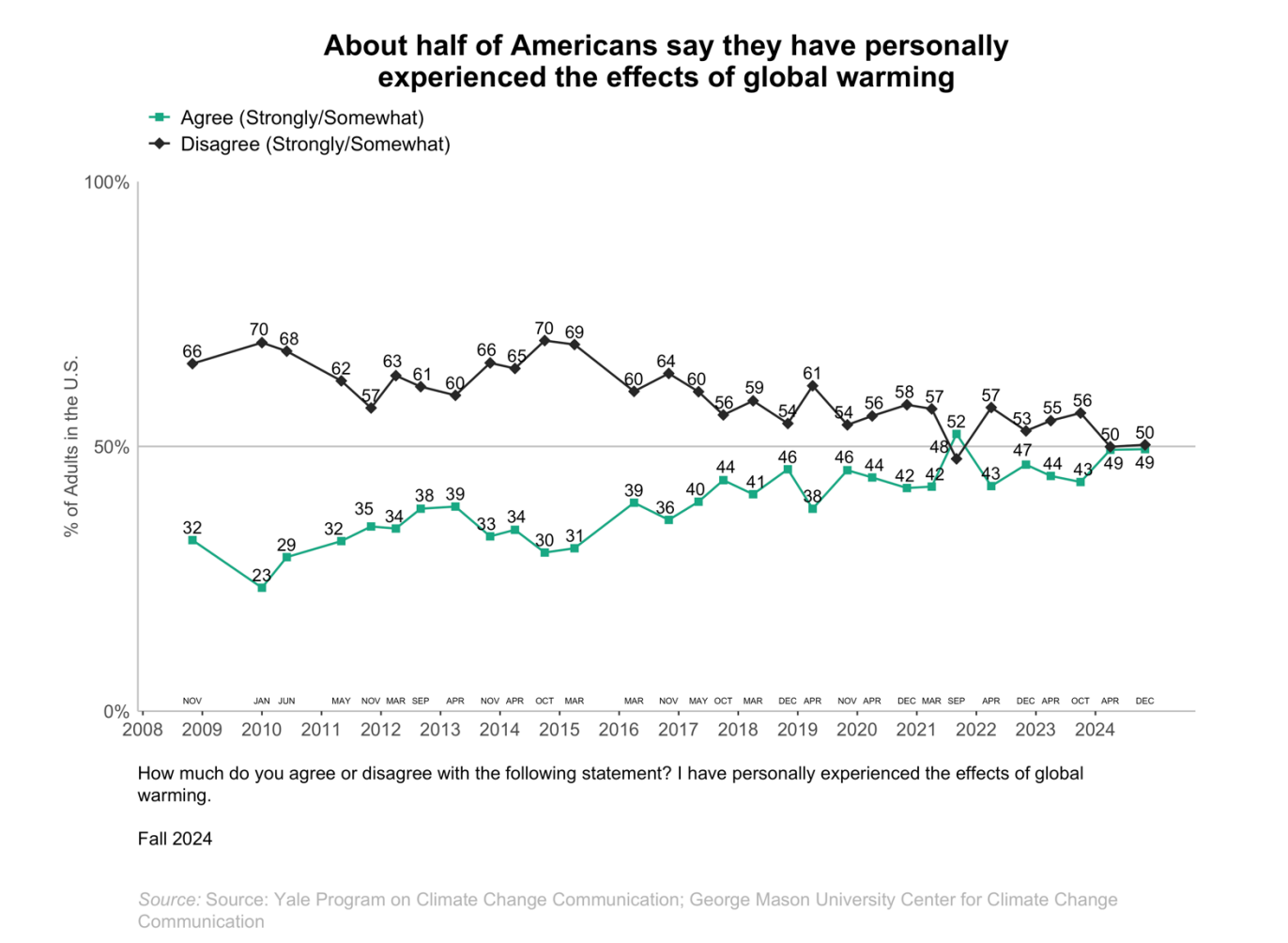Most in US worry about global warming — but their votes tell a different story
Researchers say environmental issues are not top of mind for many voters because these days, ‘people have a lot of different worries’

Published by Planet Detroit, Louisiana Illuminator, The Invading Sea
Americans who believe in global warming vastly outnumber those who don’t, new polling shows, with the majority of people blaming it for the rise in extreme heat, hurricanes, wildfires, droughts and floods. And roughly half of U.S. residents say they have personally been affected by global warming.
However, researchers who conducted the polling say climate change still hasn’t made it to the top of the list of concerns for American voters, who last fall overwhelmingly elected Republican leaders, some of whom deny climate change is human caused — or that it’s happening at all.
Within his first month in office, President Donald Trump has followed through on campaign promises to claw back funding from then-President Joe Biden’s Inflation Reduction Act, which included billions of dollars in grants and tax credits for renewable energy to reduce greenhouse gas emissions linked to climate change.
Trump also pulled the United States out of the Paris Agreement, an international treaty to reduce greenhouse gas emissions, killed Biden’s National Climate Task Force and declared a national energy emergency calling for more domestic production of fossil fuels — the No. 1 cause of climate change.

“There's a huge disconnect between people's growing concerns about climate change and who they are voting for,” said Edward Maibach, director of George Mason University’s Center for Climate Change Communication, which conducted the survey.
Maibach said environmentally conscious voters have a poor track record of showing up to vote, and global warming just wasn’t top of mind during the most recent presidential election. The poll found that 62% of its respondents said they “rarely” or “never” discuss global warming with family and friends.
“I think the bigger part of the disconnect is that there's just a lot going on in the country and in the world right now,” he said. “And you know, people have a lot of different kinds of worries.”
The poll, titled Climate Change in the American Mind: Belief and Attitudes, was published this month by researchers from the climate change communication programs at George Mason and Yale University. The poll taken Dec. 11-22 found that 73% of the more than 1,000 adults surveyed think global warming is happening. And 60% of Americans see it as human caused.
Maibach said concerns about global warming have gradually increased over the past 16 years they’ve conducted the survey, in part because more people say they’ve experienced the effects of global warming through extreme weather events including tornadoes, hurricanes, floods and wildfires.
Other findings in the report:
- 64% of the respondents admitted to being “somewhat worried” about global warming, with 28% of those people saying they are “very worried” about the issue.
- 49% say they have personally felt the effects of global warming — double the number from 2010.
- 11% of Americans have considered moving to avoid the impacts of global warming.

“Many still see it as a distant problem,” Maibach said. “Absolutely the polar bears are getting their (butts) kicked, but people, not so much.”
And a lot of that apathy is coming from conservatives. Maibach attributes their indifference to right-wing politicians who deny that climate change is a real or an immediate threat. Some frame solutions liberals have proposed to address global warming as creating new problems that would be even more damaging to the planet.
That’s despite the fact that the very funding targeted for elimination by Trump is actually disproportionately benefiting Republican-led states.
“It’s conservative pundits and politicians sending out these messages over and over again, even going after clean energy and renewable energy,” Maibach said. “Five years ago, there was pretty much widespread support among both Democrats and Republicans that a clean energy future for America is a better future for America. But the Republicans really have started to change their mind on that.”
A separate report George Mason and Yale researchers released ahead of last year’s presidential election cited polling that showed only one out of 10 Republicans considered global warming a “very important issue” when choosing who to vote for compared to more than six out of 10 registered Democrats.
The disconnect between voters’ views on global warming and who they elect isn’t unique to the United States, according to the International Institute for Democracy and Electoral Assistance (IDEA). In 2024, the trend held true across much of Europe, South and Central America and countries including India and Indonesia, where climate change is recognized as a major problem but rarely came up in campaign rhetoric.

Bucking the trend was Mexico, which elected a climate scientist, Claudia Sheinbaum, as president. But as IDEA notes, “It remains to be seen whether action will follow … (in a) country where the oil industry for long has been central both politically and economically.”
Danielle Butcher Franz, chief executive officer of the nonprofit environmental group the American Conservative Coalition, agreed with Maibach that jobs, inflation and national security issues take precedence.
“The inability of the climate movement to grasp this is exactly why it continues to alienate large segments of the public,” Franz said. “Voters can recognize climate change as an issue while also rejecting the apocalyptic rhetoric that dominates mainstream climate discourse.”
If climate advocates want conservative voters to engage more in global warming issues, she said, “They need to stop talking about distant polar bears and start connecting the issue to real, tangible concerns — like energy affordability, local conservation and disaster resilience.”
Added Franz: “Until that shift happens, climate will continue to be a secondary issue at the ballot box, not because voters don’t care, but because they aren’t being given a compelling reason to prioritize it.”
Floodlight is a nonprofit newsroom that investigates the powerful interests stalling climate action.


